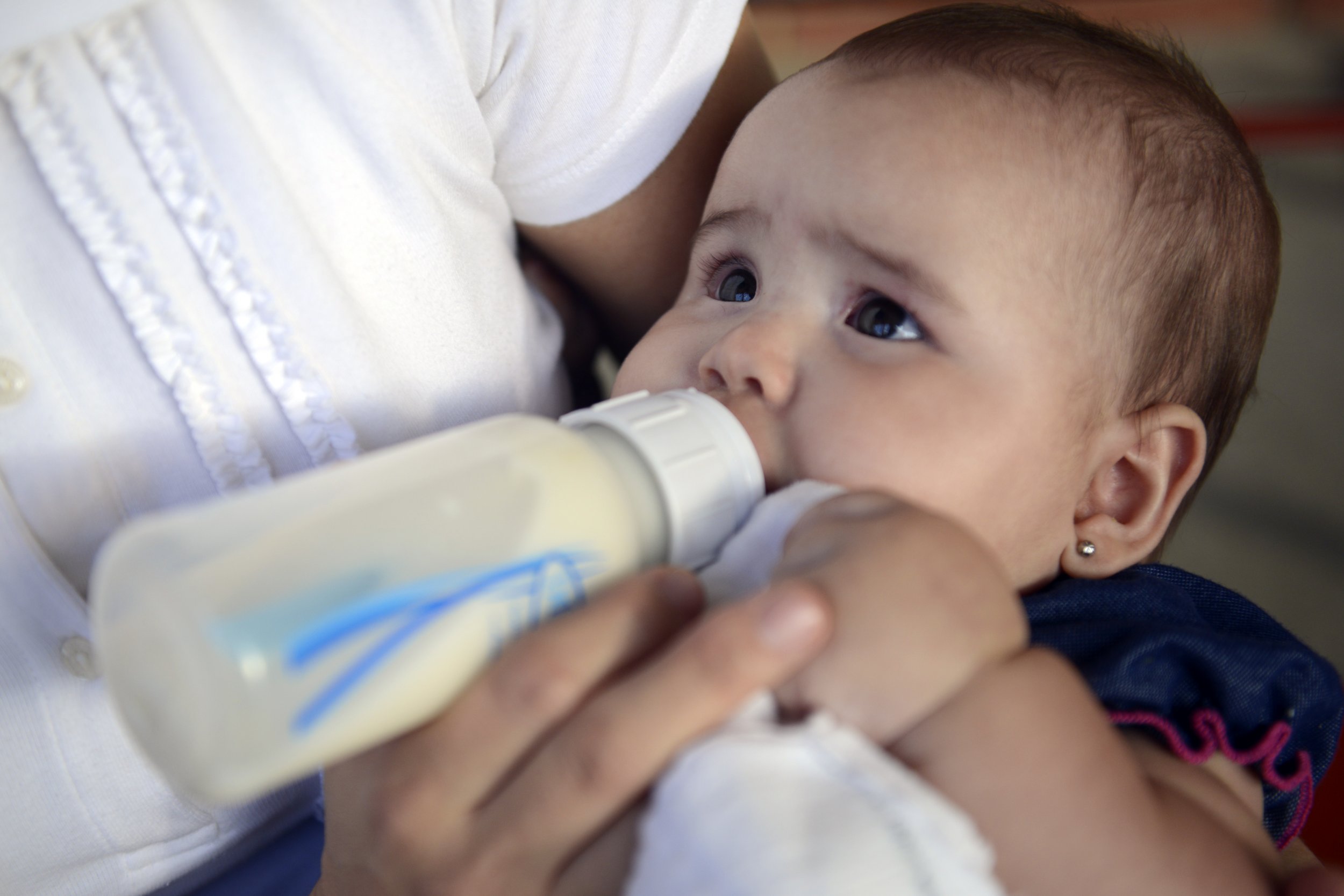
The Paleo movement has gone too far. At least, that's what Dr. Keith Ayoob, pediatric nutritionist and registered dietician says of what's being deemed the "caveman-diet" inspired baby food line, Serenity Kids. "This is where carb phobia has gotten way out of control," Ayoob tells Newsweek.
The Austin, Texas, based company claims it's filling a gap in the market. "We couldn't find a baby food high in healthy fat and protein, and we saw how difficult it was for our friends who cook all of their babies' food," founders Joe Carr and Serenity Heegel write on the company website.
Related: How to Care for Your Baby: Teach Breastfeedin in Schools, Say British Doctors
Perhaps the absence of a protein-rich baby food is tied to the fact that parents don't really need to spend roughly $4.50 on four ounces of food, which is what one pouch from the six pack costs according to the company's advertised costs.
"The primary source of protein for babies in the first year of life is still going to be breastmilk and formula," says Ayoob. Babies do require ample protein with recommendations of about 9-11 grams per day. Aside from the stress on meat consumption, Serenity Kids claims that its grass-fed meals have higher levels of omega-3 fatty acids, which Ayoob points out, isn't one of beef's top attributes.
"You don't rely on beef for omega-3s," he says. "For me, it's just miniscule." The University of California Berkeley estimates that 3.5-ounces of grass-fed meat has roughly 80 milligrams of the nutrient, which is double that of grain-fed cows. In comparison, salmon contains between 1,000 to 2,000 milligrams of omega-3. Some parents may be concerned about introducing fish to infants, but Dr. William Sears, M.D., explains in an article on Parents.com that only shellfish need to be avoided. Otherwise, salmon could be incorporated with other solids at six months.
Ayoob echoes this sentiment, explaining parents can offer meat, vegetables, fruit and grains beginning at about four months of age, though he thinks it's best to offer meat in small quantities.
Liz Sanders, registered dietitan and Director of Research and Partnerships at the International Food Information Council Foundation, agrees with that approach.
"The short-term and long-term effects of protein heavy diets for infants are not yet well understood, from a research standpoint," she writes via email. "Compared to other nutrients, protein can be more difficult to digest in a baby's stomach. Also, an excessive amount of protein could lead to digestive discomfort, or possibly kidney problems, for infants as their digestive systems are still quite delicate."
Ayoob raises another good point.
"Infants and toddlers are not little adults," he said. "They have different needs and are more vulnerable, especially at a time when their bodies, particularly their bones are at a very rapid stage of development."
Related: 9/11 Children: Scientists Find Toxins in Their Baby Teeth
It's unclear whether Heegel agrees. In an interview with ABC, she explained that infants don't need special diets. "We realized that babies do not really need to eat any different, that eating vegetables, meat and nuts is good for them too," she says, though no information is provided on whether Heegel or Serenity Kids advocates a Paleo diet for infants. However, the co-founder does follow the diet plan.
Ayoob says the best way to ensure your baby has a healthy diet is to find balance among the five food groups. "If you're giving that much protein, what are you not giving them?" he asks.
Uncommon Knowledge
Newsweek is committed to challenging conventional wisdom and finding connections in the search for common ground.
Newsweek is committed to challenging conventional wisdom and finding connections in the search for common ground.
About the writer
Melissa is a science writer covering health for Newsweek and has contributed to Inc., Dr. Oz The Good Life, Men's Fitness, Marie Claire and others. She earned ... Read more
To read how Newsweek uses AI as a newsroom tool, Click here.








